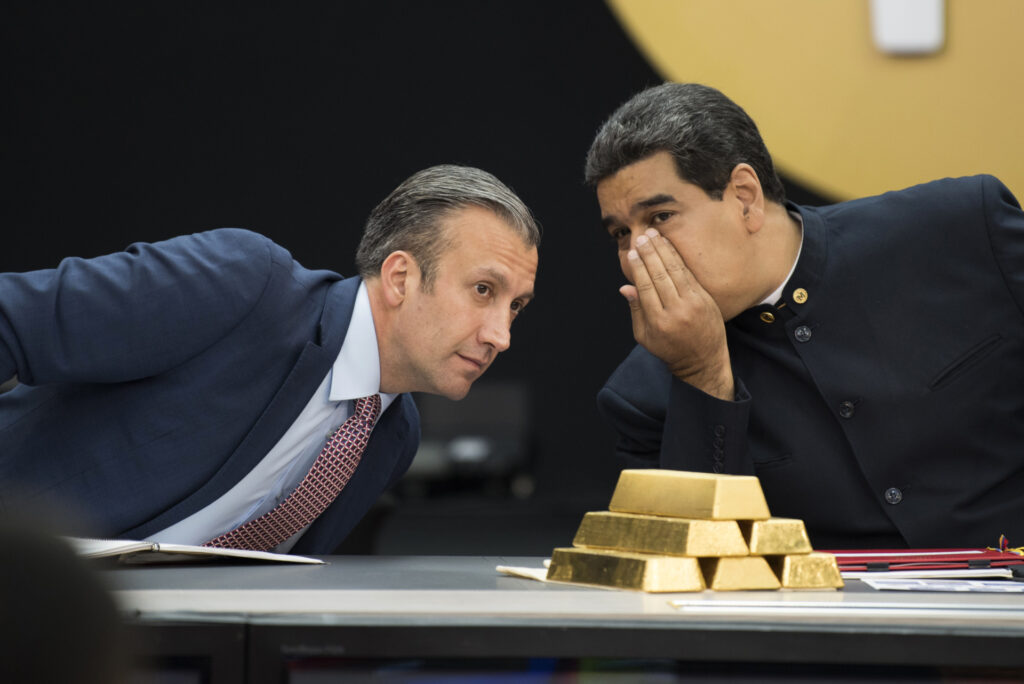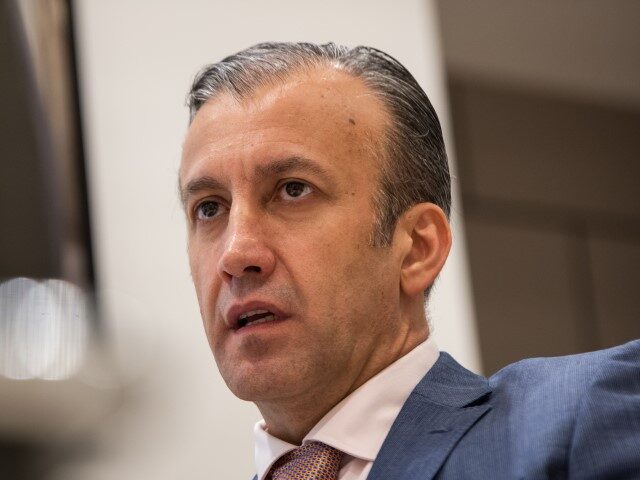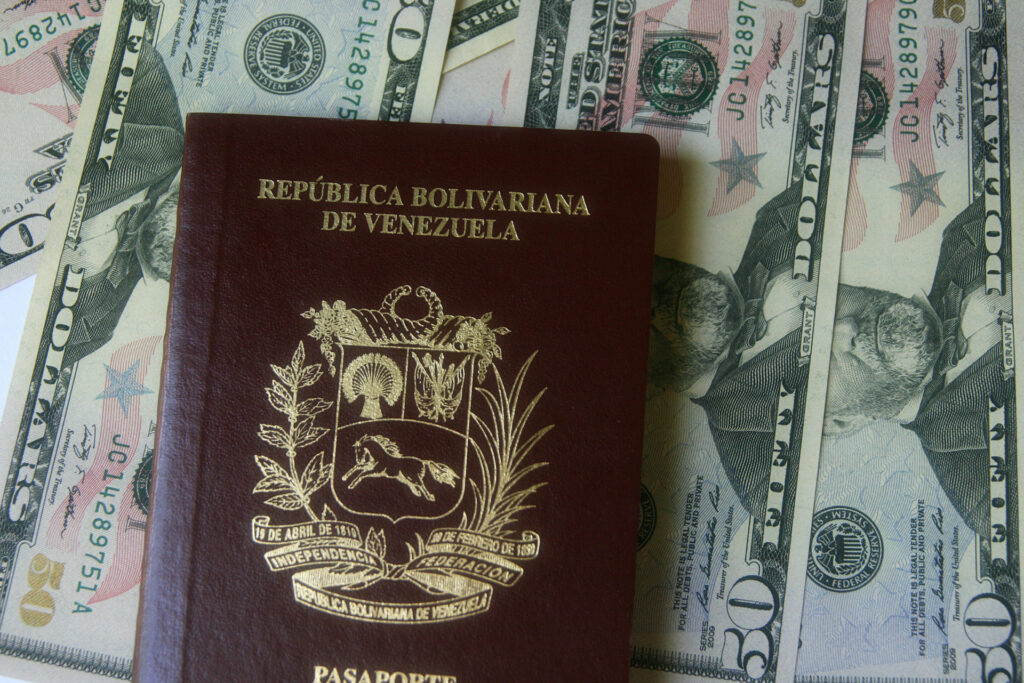Tareck El Aissami, former Venezuelan oil minister and a defrocked high-ranking member of the nation’s ruling socialist regime, resurfaced Tuesday in handcuffs, charged with treason, money laundering, and corruption after having disappeared for a year.
El Aissami was purged by socialist dictator Nicolás Maduro in March 2023 as part of a purported “anti-corruption” probe. Regime authorities are accusing him of stealing billions of dollars in oil revenue from the state-owned Petróleos de Venezuela (PDVSA) firm during his tenure as oil minister, from 2020 to 2023.
El Aissami “resigned” from his position as oil minister in March 2023 to “collaborate” with investigations over the “disappearance” of $3 billion in oil revenue from Venezuela’s state coffers. His resignation and Maduro’s purge of El Aissami and his close allies effectively removed his faction from the ruling United Socialist Party of Venezuela (PSUV).
In addition to El Aissami, his top frontman, businessman Samark López, and former Finance Minister and close Maduro ally Simón Zerpa were also arrested on Tuesday.
Venezuelan Attorney General Tarek William Saab announced the arrests during a press conference, claiming the three men had conspired to “destroy Venezuela’s economy” and committed “a plurality of crimes,” for which they would receive “an exemplary sanction.”
“These scoundrels, who at a bad time used their positions that the State gave them to obviously make important advances in the economy, allied themselves with [fake companies] to seek, in this economic conspiracy, to destroy the economy,” Saab said.
Saab showed photographs of a handcuffed El Aissami as he was accompanied by Venezuelan intelligence officials. He also showed images of López and Zerpa’s detention. The Venezuelan attorney-general described El Aissami as “head of the pranate [Venezuelan criminal fiefdom-esque system]” of the alleged plot.
The former “oil czar” is a protegé of late dictator Hugo Chávez and was a high-ranking member of the Maduro regime, having occupied a wide array of positions in the Venezuelan government since 2003, including the vice presidency of the country in 2017 and 2018. El Aissami has long been believed to maintain close ties with the Shiite jihadist organization Hezbollah, serving as a facilitator for the relations between Hezbollah and the Maduro regime.
Reports published in 2017 indicated that El Aissami had sold Venezuelan passports to Hezbollah members during his tenure as interior minister.
American authorities have long accused El Aissami of being a drug kingpin. In 2017, during the administration of former President Donald Trump, the United States identified El Aissami as a specially designated narcotics trafficker and imposed sanctions on him. Since 2020, the United States has an active $10 million bounty for any information leading to his arrest and/or conviction. It remains unclear at press time how El Aissami’s arrest in Venezuela will affect that reward.
El Aissami was also the governor of the state of Aragua between 2012 and 2017. Aragua is the birthplace of the eponymous Tren de Aragua, a once local trade union gang that grew exponentially to become a transnational criminal organization with an active presence in several Latin American countries and the United States.
According to Saab, El Aissami and his associates used their positions to carry out “illegal oil operations,” assigning crude oil shipments “without any type of administrative control or guarantees of PDVSA.”
The payments of the alleged illegally assigned oil shipments were never made, according to the attorney general, and were allegedly embezzled through the use of cryptocurrency assets and the purchase of local real estate properties and construction work investments.
Saab also claimed that El Aissami and his allies “sent briefcases abroad full of cash and oil,” stressing that the overall losses were estimated in the “billions” of United States dollars.
Saab also linked all three men to “a network of prostitution” of young Venezuelan and foreign girls allegedly also used to launder money. Saab asserted that El Aissami’s preferred “pre-paid” — a regional slang term for a high-class prostitute — had been identified as Elizabeth Yépez, and claimed that Yépez had fled to the United States.
Saab also referred to the fact that the Maduro regime maintained more than a year of complete silence over El Aissami following the March 2023 purge, which prompted local citizens and media outlets to ask him for El Aissami’s whereabouts.
“For the doubters, now they should stick their tongues where they can fit them,” Saab said. “This was one of the most difficult plots that covered up responsibilities.”
Up until the purge of his entire faction from the ruling socialist regime in March 2023, El Aissami counted on consistent praise and protection from dictator Nicolás Maduro. In 2019, Maduro publicly defended El Aissami against United States accusations over his ties to Hezbollah.

Nicolas Maduro, Venezuela’s president, right, speaks to Tareck El Aissami, Venezuela’s vice president, during a news conference in Caracas, Venezuela, on Thursday, March 22, 2018. (Carlos Becerra/Bloomberg via Getty)
Maduro claimed that the United States attacked El Aissami due to his “Arab family,” describing him as a “brave man,” a “true patriot,” and a “revolutionary, a socialist.”
SImilarly, late dictator Hugo Chávez defended El Aissami, claiming that he was sure of El Aissami’s “honesty, transparency and revolutionary character.”
Christian K. Caruzo is a Venezuelan writer and documents life under socialism. You can follow him on Twitter here.


COMMENTS
Please let us know if you're having issues with commenting.